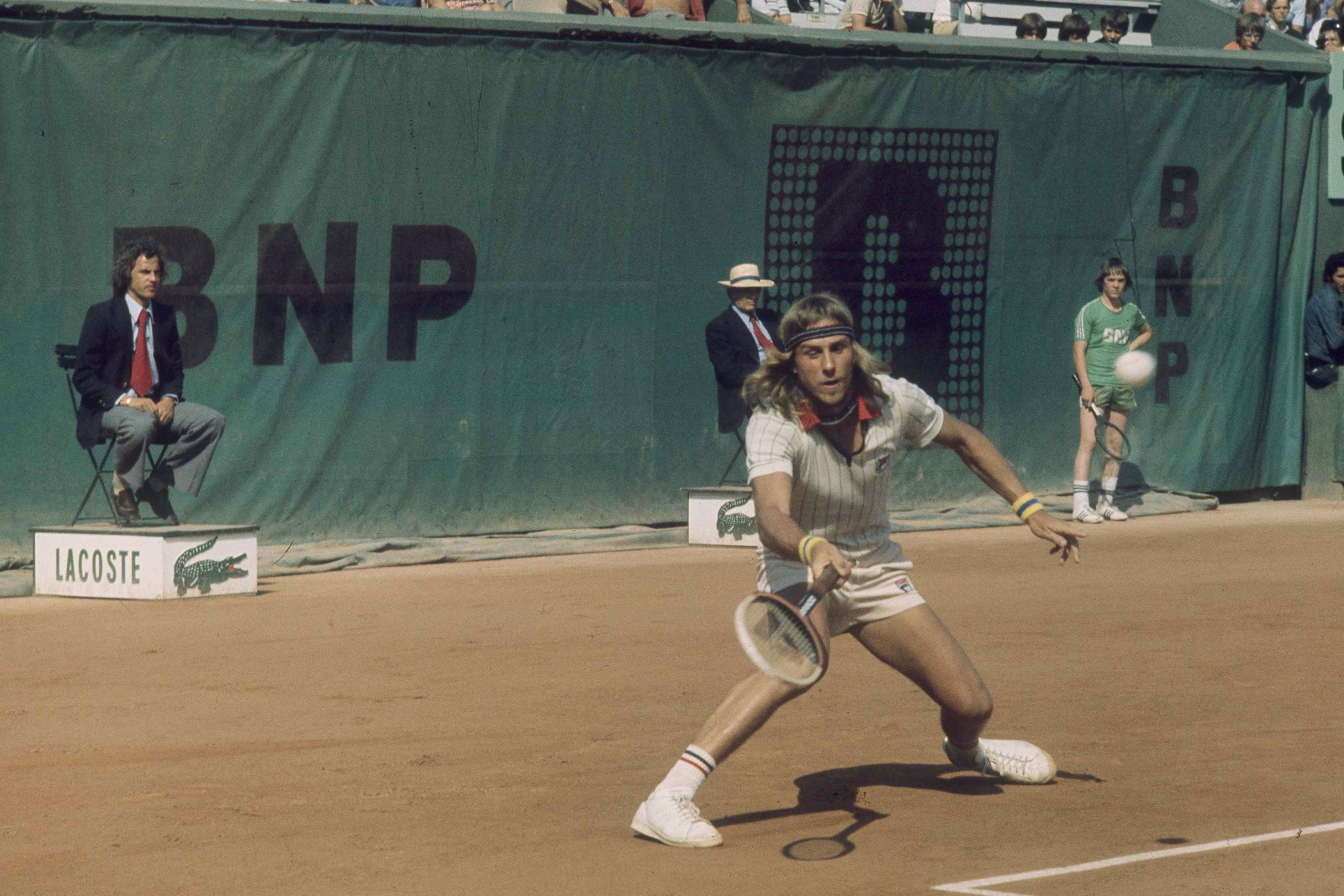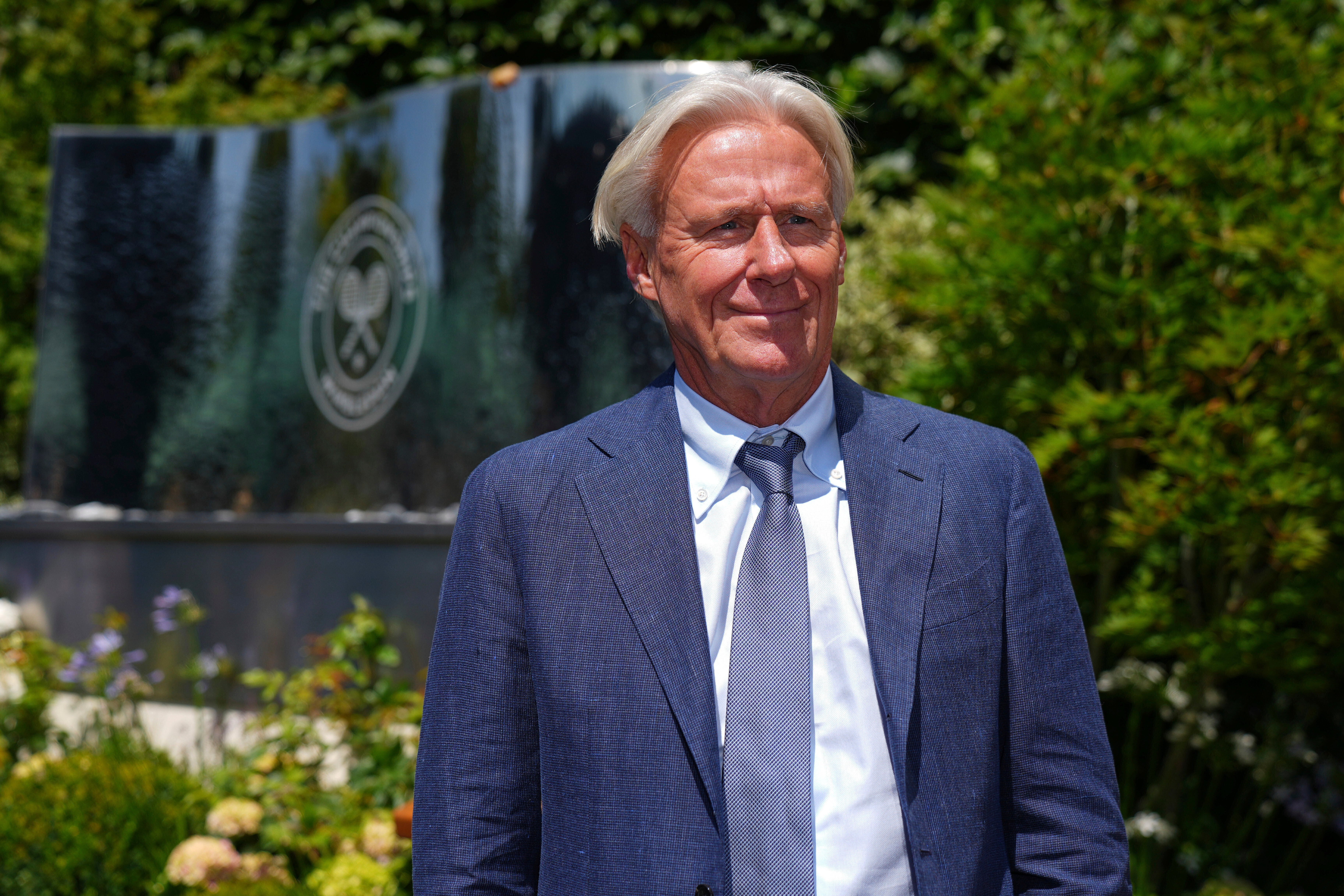Björn Borg's memoir, Heartbeats, opens with his 1990s hospitalisation after overdosing on “alcohol, drugs, pills – my preferred ways of self-medication”, and concludes with a prostate cancer diagnosis.
“It’s good,” Borg, 69, said in a recent video interview with the Associated Press from his home in Stockholm, "to have a good beginning and a good ending."
This 292-page book, set for US release on 23 September by Diversion Books, details his love life, adventures, regrets, and the 11-time Grand Slam champion's match recollections.
Famously private, Borg kept a lot to himself during his days on tour – as well as since he surprisingly retired in his 20s.

He brings readers back to when, having lost the 1981 Wimbledon and US Open finals to rival John McEnroe, Borg realised he was done.
“All I could think was how miserable my life had become,” he writes.
He was 25 and, while he would briefly return to tennis, he never competed at another Grand Slam event.
After the 1981 final at the US Open, a tournament he never won, Borg grabbed some beers and sat in the pool at a house on Long Island, where friends planned a party to celebrate a victory.
“I was not upset or sad when I lost the final. And that’s not me as a person. I hate to lose,” he told the AP.
“My head was spinning," he said, "and I knew: I’m going to step away from tennis.”

Borg writes about his childhood and his relationships with his parents (and, later, his children).
He writes about earning the nickname “Ice-Borg” for calmness on court – often contrasted by fans to the more fiery McEnroe and Jimmy Connors. And Borg writes that did not come about “organically”, but rather via “the bitter experiences” of a 12-year-old kid.
“I behaved so badly on the tennis court. I was swearing, cheating, behaving the worst you can imagine,” he recalled in the video interview.
He said his hometown tennis club banned him for six months and, when he returned, “I did not open my mouth on the tennis court, because I was scared to get suspended again.”
“Boiling inside? Yes,” Borg told the AP. “I had to control my feelings ... You cannot do that in one week. It took years to figure out how I should behave on the court.”
Borg discusses cocaine and two overdoses that landed him in the hospital
Borg writes about panic attacks and his drug use, which he says started in 1982.
"The first time I tried cocaine," he says in the book, “I got the same kind of rush I used to get from tennis.”

He also writes about “the worst shame of all”, which he says came when he looked up from a hospital bed in Holland to see his father. Borg also clarifies that an earlier overdose, in 1989 in Italy, was accidental, not a suicide attempt.
“Stupid decision to be involved with this kind of thing. It really destroys you,” he told the AP about drugs. “I was happy to get away from tennis, to get away from that life. But I had no plan what to do ... I had no people behind me to guide me in the right direction.”
Borg name-drops Trump, Arafat, Warhol, Hefner, Tina Turner in his memoir
In all, Borg paints the picture of quite a life.
There was a water-skiing shoulder injury before the 1977 U.S. Open. Death threats during the 1981 US Open. Getting paid in cash ... and getting robbed at gunpoint. A woman claiming he was the father of her son. Coin-throwing by spectators in Rome, which led him to never return.
This is not the typical sports autobiography: there is a reference to getting a message to Yasser Arafat and, five pages later, the phrase “Andy Warhol was someone easy to like” appears. There are name-drops of Donald Trump, Nelson Mandela, Tina Turner and “my old friend Hugh Hefner”, among many, many others.
“People will be very surprised [by] what really happened,” Borg told the AP. “For me to come out (after) all these years, all I went through – I went through some difficult times – (it’s) a relief for me to do this book. I feel so much better ... No secrets anymore.”
How king of Wimbledon Bjorn Borg descended into a secret life of drugs and alcohol
Bjorn Borg taking life ‘day by day,’ after ‘extremely aggressive’ cancer diagnosis
Great Britain preparing for Billie Jean King Cup opener against Japan
Emma Raducanu vs Barbora Krejcikova live: Latest score and updates from Korea Open
Billie Jean King Cup Finals schedule, teams and how to watch on TV
Elina Svitolina seals Ukraine’s spot in Billie Jean King Cup semi-finals







